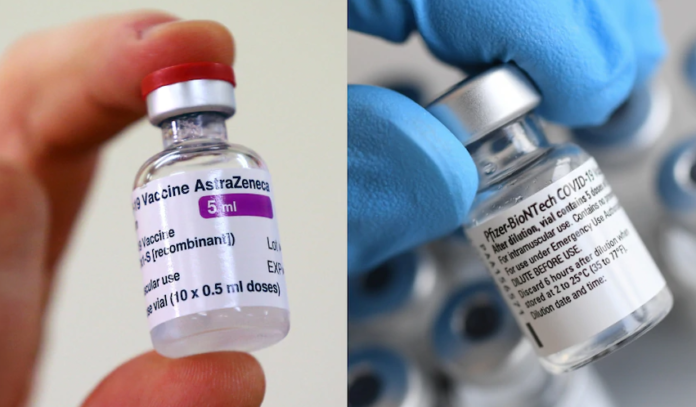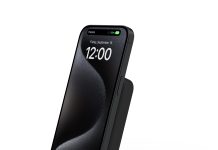With the growing emergency across New South Wales, Victoria and South Australia, there has never been more urgency to get COVID-19 vaccines into the arms of the population to keep us safe from COVID-19 and the Delta variant in particular. With New South Wales Chief Health Officer Kerry Chant labelling it a National Emergency today, the push is on to get as many adults vaccinated as soon as humanly possible.
However, if you’re like many, you probably don’t know who’s eligible, where to get a vaccine or how to organise one.
Who’s eligible for a COVID vaccine?
While we’ll avoid talking about the health advice, medical advice or science, we will comment that – in New South Wales, at least – the following statements are true:
- Anyone over 40 years of age is eligible to receive a Pfizer vaccine
- Anyone aged 40 years of age is eligible to receive an AstraZeneca vaccine at the state-run health hubs
- Any adult under 40 years of age is eligible to receive the AstranaZeneca vaccine via their GP or (potentially) some pharmacies
- Anyone aged under 40, who is eligible under Phase 1A or Phase 1B of the national rollout, can receive Pfizer vaccine via the state health hubs, via GPs and AstraZeneca is available via some pharmacies
What we know is that AstraZeneca vaccine appointments are available on short notice (usually same day or next day) in many places across Sydney and New South Wales, and – for the most part – Pfizer vaccines are generally booked out for up to 10 weeks.
Where to get a COVID vaccine?
As noted above, there’s lots of options.
Probably the best option for most people will be via their regular medical practitioner / general practitioner. Many GP clinics are offering AstraZeneca vaccine, and a growing number are – or soon will be – offering Pfizer as well. As noted above, though, eligibility for Pfizer is more restricted.
If you do not have a regular doctor, you may still be able to book a vaccination at a local medical practice; many – though not all – do not require you to be an existing patient to receive a vaccination.
If you do not have a local medical centre that can assist you, state governments are operating vaccination hubs in key areas. In NSW, for example, there’s the hub at the Sydney Olympic Park precinct, in Macquarie Fields and elsewhere. A number of hospitals are also participating.
There are also Commonwealth-managed GP-led respiratory clinics, and for those eligible, there are Aboriginal Community-controlled health services offering vaccinations too.
Last, but not least, there are a growing number of pharmacies offering AstraZeneca vaccines, which will increase throughout August.
When can I get a COVID vaccine?
If you’re holding out for Pfizer, you might be waiting a while. There are increasing numbers of Pfizer vaccine coming into the country each week, and while more appointments are coming available all the time, generally they’re not available on short notice.
It’s recommended to use the COVID-19 vaccination program for 16 to 39 year olds | Australian Government Department of Health eligibility checker and, if you are confirmed eligible, you’ll be able to see a list of participating vaccination clinics near you to make a booking.
If you’re happy to take AstraZeneca vaccines, you don’t really need to bother with the eligibility checker, you just need to find a nearby clinic and book in. Chances are you’ll only be waiting a day or two at most.
How do I book in?
You’ve got a few choices (which makes things a little confusing) but they’re all broadly pretty good.
The first and most obvious way is via the Australian Government Department of Health Eligibility Checker; if eligible, you can see a list of clinics with links to online booking options or you can ring up by phone. Please use online booking services wherever possible, as clinics are being overwhelmed with phone calls about vaccines.
There’s two widely used booking platforms used in Australia from Health Engine and HotDoc, both of which have mobile apps you can use to make bookings. Both work broadly the same way – punch in your post code, find a list of participating clinics and make a booking.
Broadly speaking, making the appointment is easy – fill in some personal details, confirm your eligibility and which vaccine you’re after (as your booking date/time depends on which one you want) and lock in. Then you just need to show up.
What’s it like? Should I be worried?
As someone who has received both doses of COVID-19 Vaccine AstraZeneca, I can tell you about my experience, though as always, your mileage may vary.
I had my first dose of AstraZeneca just after the government changed the eligibility rules in April, as I am eligible under Phase 1B due to my day job. Upon arrival at the clinic I filled out a brief questionnaire (as it was not my usual GP) and waited for a few minutes until my name was called. I met with the doctor, who confirmed my answers to the questions and (at the time) confirmed my eligibility for Phase 1B (this is before all adults were confirmed eligible for AstraZeneca). The syringe was then drawn and popped into my arm, no different to a flu vaccine or any other intramuscular shot.
I was monitored for 15 minutes to ensure no adverse effects on the spot (they were looking out for anaphylaxis primarily), and given a fact sheet on blood clot symptoms so I could seek medical help if any arose (none did).
I had some pretty ordinary symptoms after the first dose; you might liken them to a pretty nasty cold (but not anything like the flu). Headache, chills, a sore arm, my stomach was a bit upset for a few days, but nothing worst than that. Within a week or so, I was back to my usual level of health and wellbeing.
I had my second dose at the end of June (just on four weeks ago). This dose I had at my local GP (which was, by this time, participating in the rollout) and it was administered by the practice nurse. I was in and out of the clinic in 5 minutes, and experienced no adverse effects the second time around. The nurse remarked that I was doing the right thing by the community getting vaccinated as a “young” person (who’s turning 40 later this year), so I left with a sore arm and a grin on my face.
From what I’ve heard – and this may be entirely different for different people – AstraZeneca causes some more side effects for the first dose, and the second is largely unremarkable. With Pfizer, the reverse is apparently true – the first shot doesn’t knock you around much, but the second does a bit more.
None of this is to constitute health advice, just passing on information about how, when, where, etc. so that people can make their own informed decisions and get the jab done.





Hi Chris, look I’m going to say what I think a lot of other readers are thinking at the moment and that is; I used to come to Ausdroid for the latest tech news and to escape the bad news of the world like covid. When I go to a tech site I don’t want to read about anyone’s personal experience about getting vaccinated or one of their personal shopping experiences. I think the Ausdroid site may have forgotten about what the site started as a site that wrote about tech and tech related things rather than write about personal… Read more »
Hi Jamie, I’ve thought carefully about your comment before replying. In case you’ve not noticed, the world’s changed in the last 18 months. Not just here in Australia, not just in tech news, but entirely. People are out of work. People have lost loved ones. People are having a hard time. Our focus hasn’t changed; we’re still talking about technology, but we’re looking more and more at the intersection between technology and people’s lives, rather than promoting (and actively taking part) in rampant consumerism. To that end, we don’t talk about every single new thing that’s happening in the realm… Read more »
Chris, blowing Jamie S off, at the end of what, otherwise was a good and measured response, isn’t a really good look.